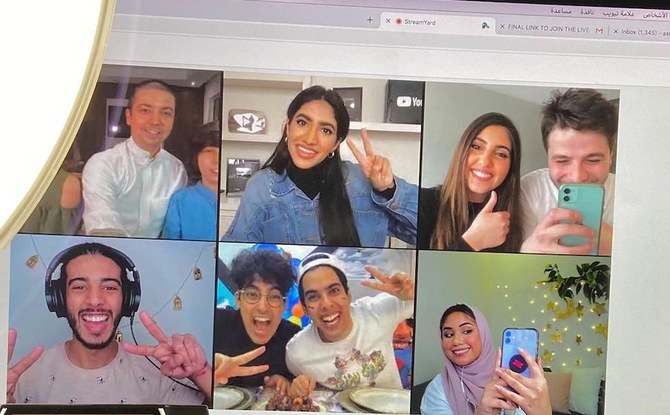DUBAI: Samia Dzair, a French Algerian animator handpicked by Saudi creative hub Diriyah Art Futures for its inaugural Emerging New Media Artists Program, said she hopes to broaden her horizons as part of the initiative alongside an international cohort of artists.
The year-long program, based in the UNESCO World Heritage site of Diriyah in Riyadh, will provide the chosen participants with access to professional equipment and facilities, a production budget, the opportunity to learn from guest lecturers from around the world specializing in new media art, and mentorships.
Dzair told Arab News she intends to use the opportunity to “fully question the various themes I address in my artistic work, such as myths, immigration and uprooting, while at the same time having the chance to produce quality work, with a real budget.”
She will join fellow artists from Jordan, Egypt, Saudi Arabia, China, Wales and other countries who were selected for the initiative, and said this varied, international collection of up-and-coming talents was a particularly appealing aspect of the program.
“Being in a group with other artists from different backgrounds is going to be very inspiring,” Dzair said. “We’ll be able to exchange our experiences, our respective world outlooks and inspire one another.”
She will be aiming develop her skills in the field of animation, specifically the 2D and stop-motion varieties, which is something she says she was drawn to as a child.
“My first encounter with art was with animated films,” she said. “I come from a social environment where institutional culture was not very accessible (and) my father used to buy me a lot of cartoons that were sold in tobacconists’ shops, except that they weren’t always animated films for children.
“That’s how I started watching a lot of animated films like ‘Ghost in the Shell,’ which weren’t for my age but which forged my aspirations and my aesthetic,” she added, referring to the 1995 anime film directed by Mamoru Oshii.
She was also attracted to the medium as a creator in part because of the relatively limited resources required for an animation project. While sculptors might require blocks of marble and a set of chisels and other tools, and painters need a studio stocked with shelves of paint and brushes, Dzair said she is able to “make a film all by myself in my room with a camera or a computer, a head full of ideas and a few scraps of paper. I love it.”
She added: “The fact that you can find a-thousand-and-one ways to give an impression of movement, to bring to life an environment, a character, an interaction or an idea is simply fascinating.”
The director graduated from the KASK School of Arts in Belgium before directing two short films — “Soufre” in 2021 and “Le Poids De La Terre En Grammes” in 2022 — and also developed a TV series titled “Blue Weddings” that explores North African lore through its depiction of the ogress Teryel, a fearsome mythological character.
“(The) project … began as an emotional outlet. My quest to understand my family's neuroses and traumas led me to write this project, which originally took the form of a tale. The tale of a subversive woman, an ogress, hated by all, but who symbolizes the anger of an entire land dispossessed of its culture,” Dzair explained.
“Like my protagonist, I grew up in the north of France, and was separated from the land of my elders, and also separated from my mother at a very early age, a mother who grew up during the Algerian civil war, who faced violence and lack of education. Nonetheless she was politicized by her elders and this knowledge made her rebellious and violent because she couldn’t do anything as a ‘third world’ villager and a woman.”
Dzair’s series seeks to use the story of the ogress to explore issues relating to uprooting, war, colonization and capitalism — “what particularly interests me in the tales I refer to is the figure of the angry murdered rebel ogress, which I believe perfectly sums up the resistance shown by Algeria and all formerly colonized African countries,” she said.



















